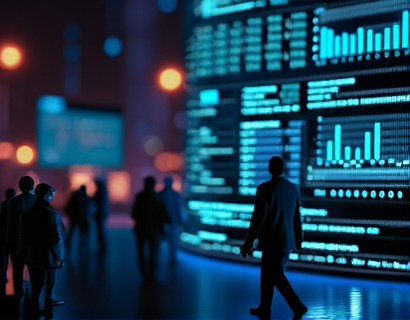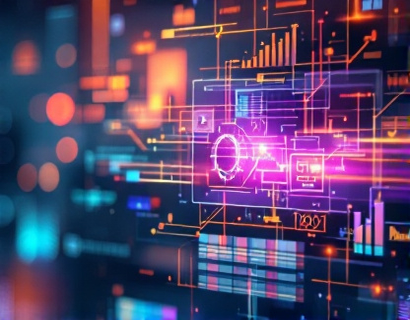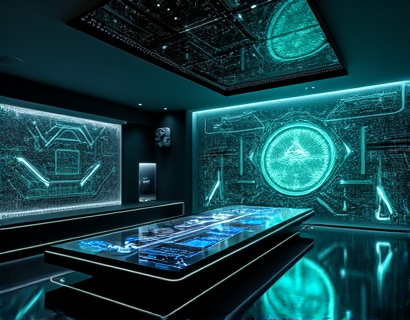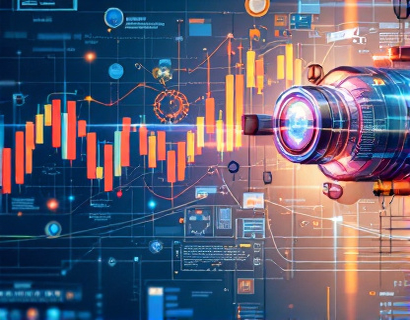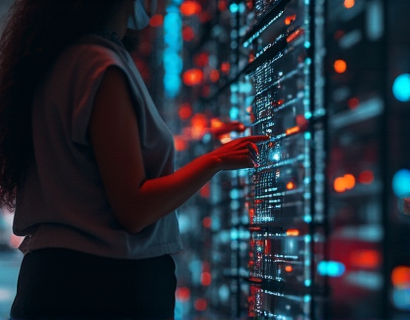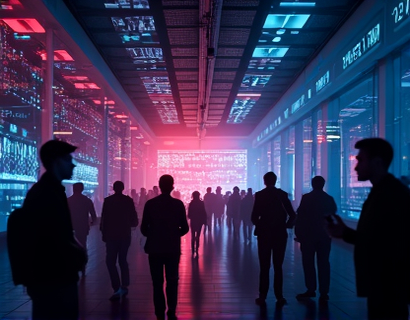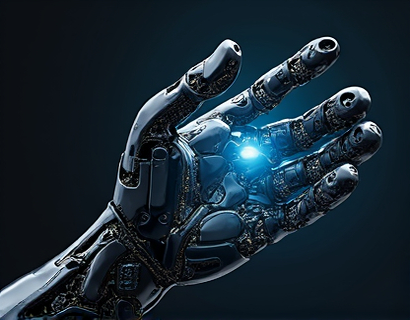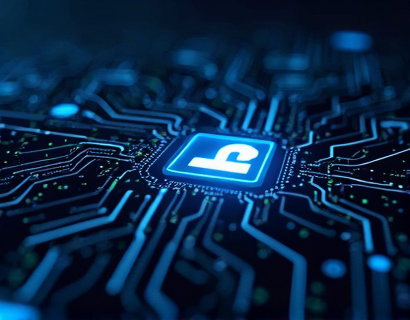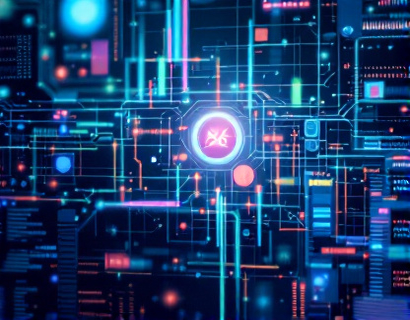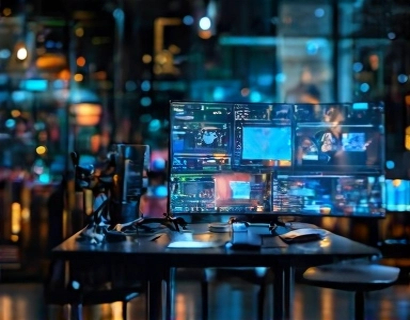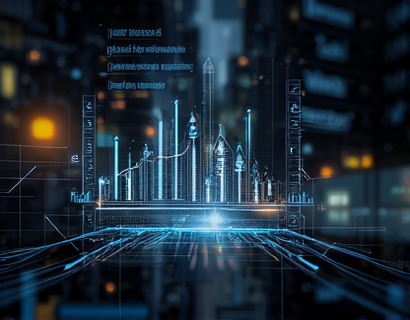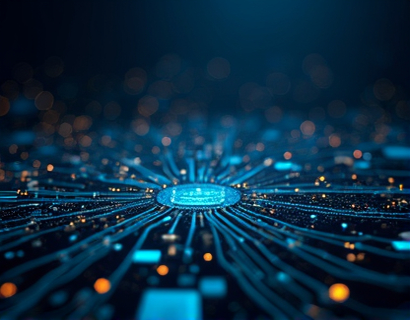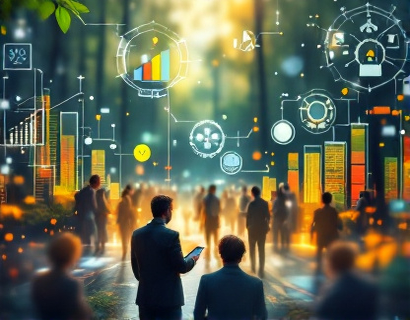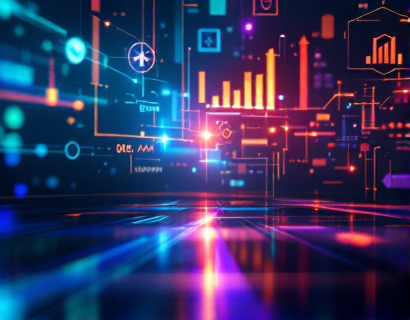Crypto AI Synergy: Transforming Digital Engagement Through Innovative Tech Solutions
The integration of blockchain technology and artificial intelligence (AI) is revolutionizing the digital landscape, creating unprecedented opportunities for enhanced engagement, security, and personalization. This article delves into the synergy between these two transformative technologies, exploring how they are reshaping the way we interact online. For tech-savvy individuals interested in cryptocurrency, AI, and digital innovation, this content offers valuable insights into the latest trends and advancements at the intersection of crypto and AI.
Understanding Blockchain and AI
Before exploring their synergy, it's essential to understand the fundamental concepts of blockchain and AI. Blockchain is a decentralized digital ledger technology that ensures transparency, security, and immutability in transactions. It operates on a network of nodes, where each participant has a copy of the entire ledger, making it highly resistant to tampering and fraud.
Artificial intelligence, on the other hand, encompasses a range of technologies designed to simulate human intelligence in machines. These include machine learning, natural language processing, and computer vision. AI systems can analyze vast amounts of data, learn from patterns, and make decisions or predictions with minimal human intervention.
The convergence of blockchain and AI creates a powerful combination that leverages the strengths of both technologies. Blockchain provides a secure and transparent framework, while AI enhances the functionality and user experience through intelligent algorithms and data analysis.
Enhancing Security with Blockchain and AI
One of the most significant benefits of combining blockchain and AI is the enhancement of security in digital environments. Blockchain's inherent security features, such as cryptographic hashing and consensus mechanisms, ensure that data is tamper-proof and secure. AI complements this by detecting and mitigating potential threats in real-time.
AI-driven security systems can analyze patterns and anomalies in network traffic, identifying potential cyber threats before they materialize. For instance, machine learning algorithms can be trained to recognize malicious activities and automatically trigger security protocols to protect user data and transactions. This proactive approach to security is crucial in an era where cyber threats are becoming increasingly sophisticated.
Moreover, blockchain's decentralized nature reduces the risk of single points of failure, which are common targets for hackers. By distributing data across a network of nodes, blockchain ensures that even if one node is compromised, the overall system remains secure. AI can further enhance this by continuously monitoring the network for any signs of vulnerability or unusual activity.
Personalization through AI and Blockchain
Personalization is a key driver of user engagement in the digital world. AI and blockchain work together to create highly personalized experiences that cater to individual preferences and behaviors. Blockchain ensures that user data is securely stored and managed, while AI algorithms analyze this data to deliver tailored content and services.
For example, in the realm of digital marketing, AI can analyze user interactions and preferences to create customized ad campaigns. Blockchain can securely store and manage user consent and preferences, ensuring that personal data is used ethically and transparently. This not only enhances the user experience but also builds trust and loyalty.
In the context of decentralized applications (dApps), blockchain enables the creation of user-centric platforms where users have control over their data. AI can process and analyze this data to provide personalized recommendations, content, and services. The combination of blockchain and AI ensures that users benefit from a seamless and secure personalized experience.
Interactive and Immersive Experiences
The synergy between blockchain and AI is also transforming the way we interact with digital content. Blockchain-based platforms can support decentralized gaming, virtual reality (VR), and augmented reality (AR) experiences, where AI plays a crucial role in creating immersive and interactive environments.
In decentralized gaming, blockchain ensures that assets and transactions are secure and verifiable, while AI can enhance gameplay through dynamic content generation and adaptive difficulty levels. AI-powered NPCs (non-player characters) can provide more realistic and engaging interactions, making the gaming experience more lifelike and enjoyable.
In VR and AR, AI can be used to create realistic avatars, natural language interactions, and context-aware environments. Blockchain can manage the ownership and trading of digital assets within these virtual spaces, ensuring that creators are fairly compensated and users have control over their digital property. This synergy opens up new possibilities for entertainment, education, and social interaction.
Decentralized Finance (DeFi) and AI
Decentralized Finance (DeFi) is another area where blockchain and AI are making significant strides. DeFi platforms leverage blockchain to provide financial services such as lending, borrowing, and trading without intermediaries. AI can enhance these services by providing predictive analytics, risk assessment, and automated trading strategies.
AI algorithms can analyze market data and user behavior to identify trends and opportunities, helping users make informed financial decisions. Smart contracts, powered by AI, can automate complex financial transactions with precision and efficiency. Blockchain ensures that these transactions are transparent and secure, while AI optimizes the process, reducing costs and increasing accessibility.
Moreover, AI can help in detecting and preventing fraudulent activities in DeFi, such as flash loans and rug pulls. By monitoring transaction patterns and identifying anomalies, AI can alert users and platform administrators to potential risks, maintaining the integrity of the DeFi ecosystem.
Supply Chain Transparency and Efficiency
The supply chain industry is another sector benefiting from the combination of blockchain and AI. Blockchain provides a transparent and immutable record of transactions, ensuring traceability and accountability. AI can optimize supply chain operations by analyzing data to predict demand, manage inventory, and streamline logistics.
For instance, AI can forecast demand based on historical data and market trends, helping businesses adjust their production and inventory levels accordingly. Blockchain can track the movement of goods from origin to destination, ensuring that each step is recorded and verifiable. This transparency reduces the risk of fraud and errors, improving overall efficiency and trust in the supply chain.
AI-powered robots and drones can also be integrated into the supply chain, performing tasks such as inventory management and delivery with precision and speed. Blockchain ensures that these operations are secure and that all parties have access to the same accurate data, fostering collaboration and trust among supply chain participants.
Challenges and Considerations
While the synergy between blockchain and AI offers numerous benefits, there are also challenges and considerations to keep in mind. One of the primary challenges is the technical complexity involved in integrating these technologies. Developers need a deep understanding of both blockchain and AI to create robust and efficient solutions.
Another consideration is the regulatory landscape. As blockchain and AI continue to evolve, regulatory frameworks are still catching up. Ensuring compliance with data privacy laws, such as GDPR, and financial regulations is crucial for the successful deployment of these technologies.
Scalability is another issue, particularly for blockchain. While blockchain offers security and transparency, it can be slow and resource-intensive. AI can help mitigate this by optimizing blockchain operations and developing more efficient consensus mechanisms. However, ongoing research and development are necessary to address these challenges.
Future Prospects
The future of blockchain and AI synergy is promising, with ongoing advancements poised to unlock new possibilities. As technology continues to evolve, we can expect to see more sophisticated applications in areas such as healthcare, finance, and governance.
In healthcare, AI-powered diagnostic tools combined with blockchain can ensure secure and accurate patient data management, leading to better healthcare outcomes. In finance, the integration of blockchain and AI can lead to more efficient and secure financial systems, reducing fraud and enhancing customer experience.
In governance, blockchain can provide transparent and tamper-proof records of votes and transactions, while AI can optimize public services and policy-making. The combination of these technologies has the potential to create more transparent, efficient, and inclusive systems.
As the ecosystem grows, collaboration between developers, researchers, and policymakers will be essential to drive innovation and address the challenges that arise. The synergy between blockchain and AI is not just a technological trend but a fundamental shift in how we approach digital engagement and interaction.









